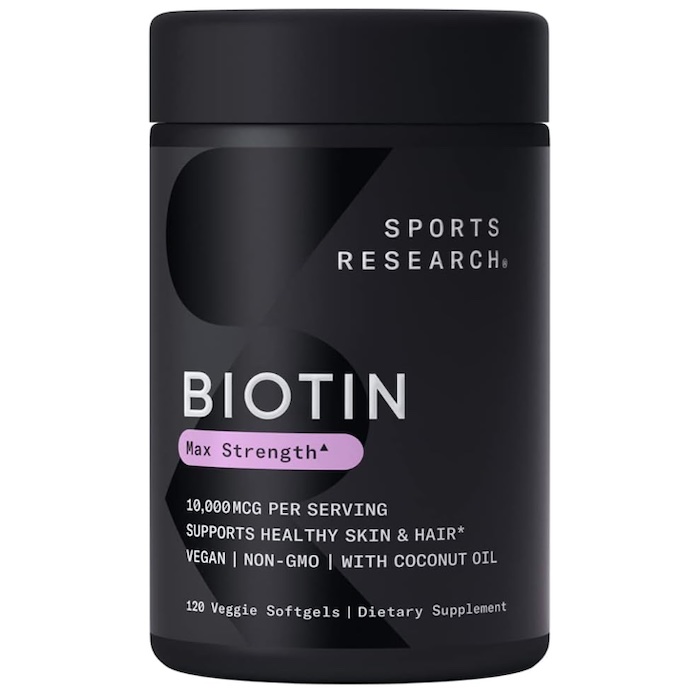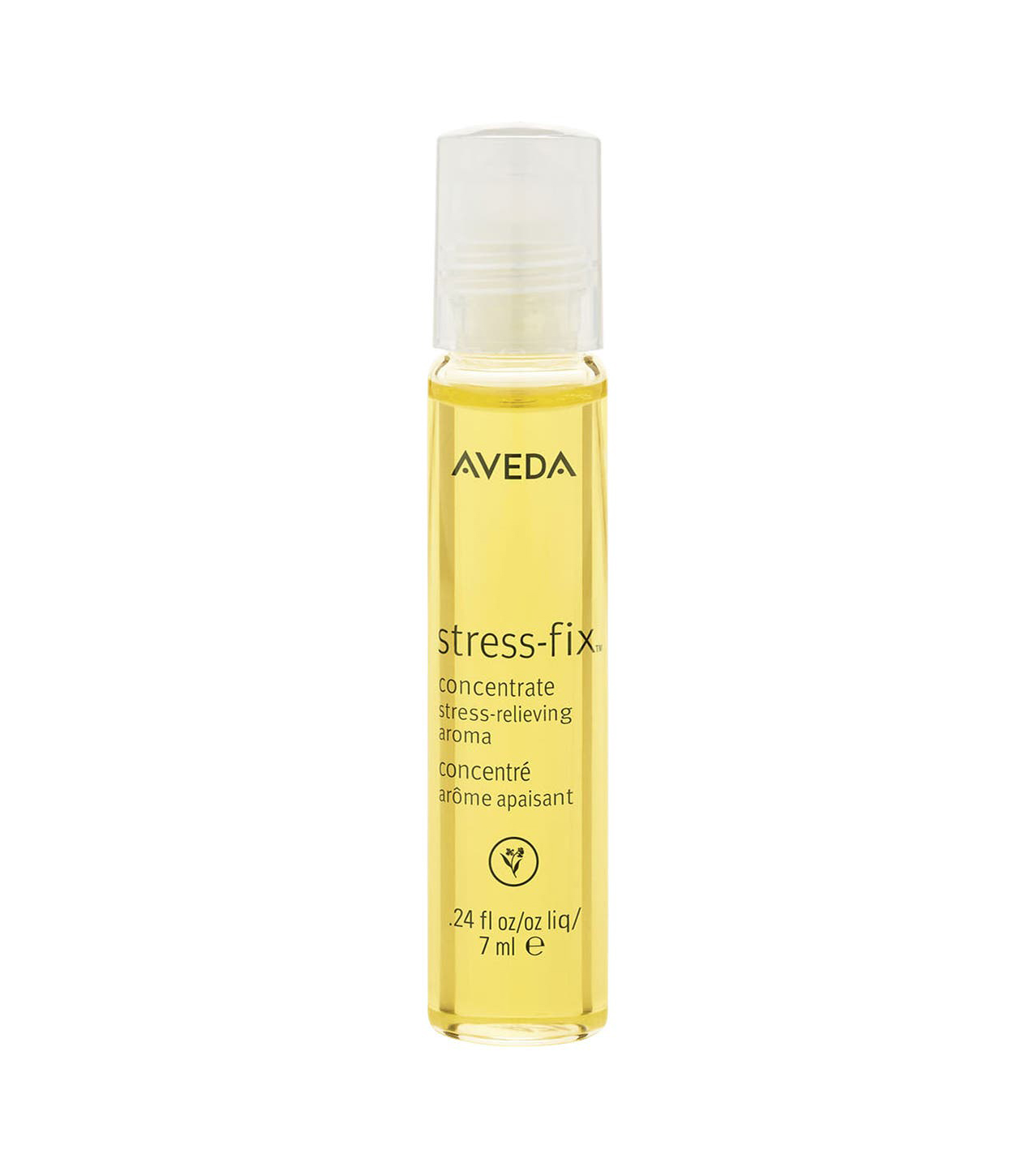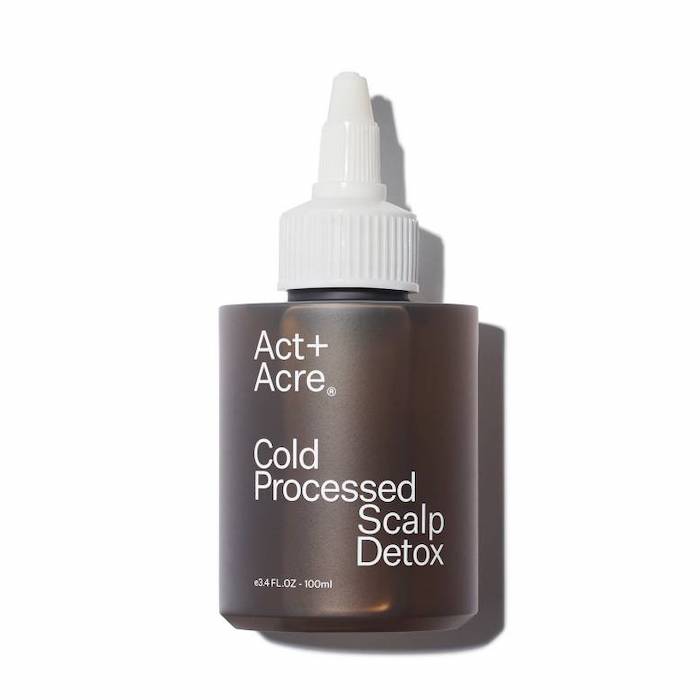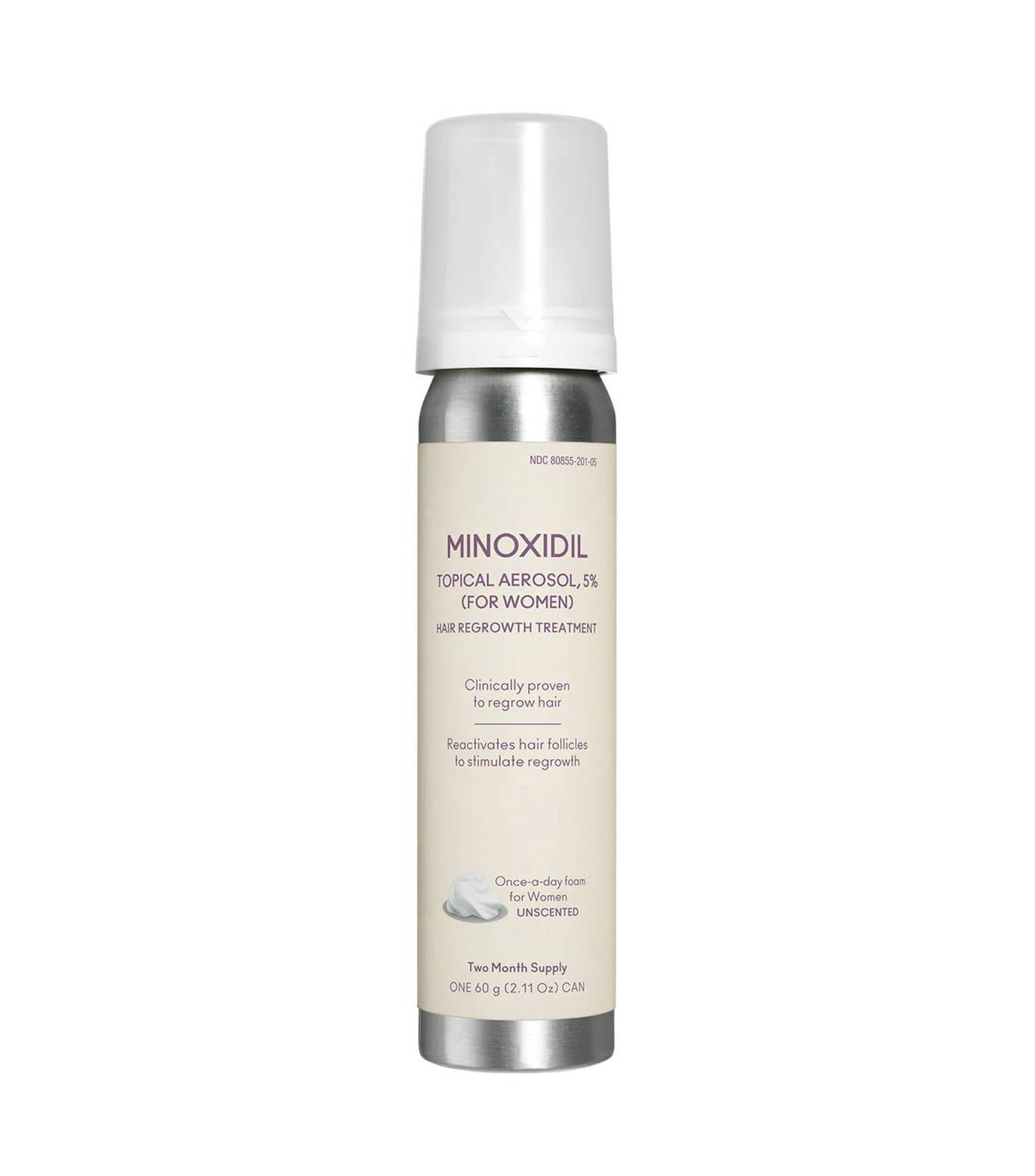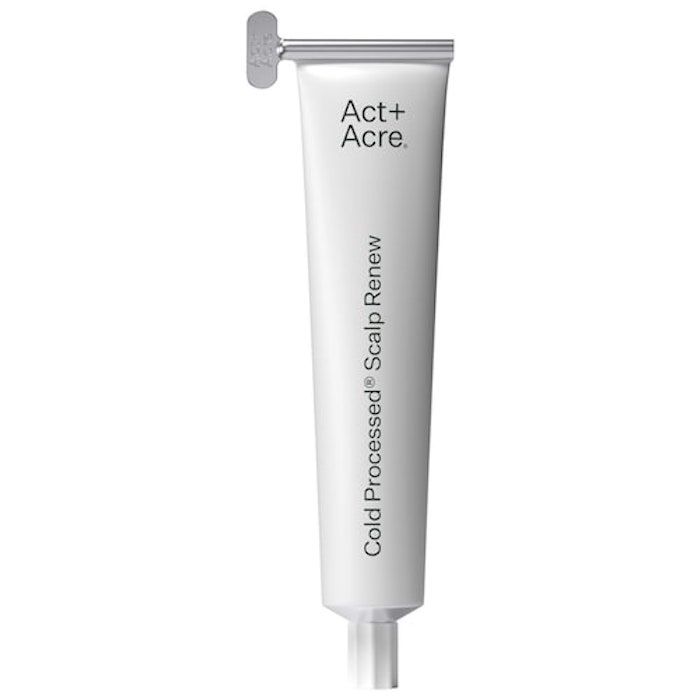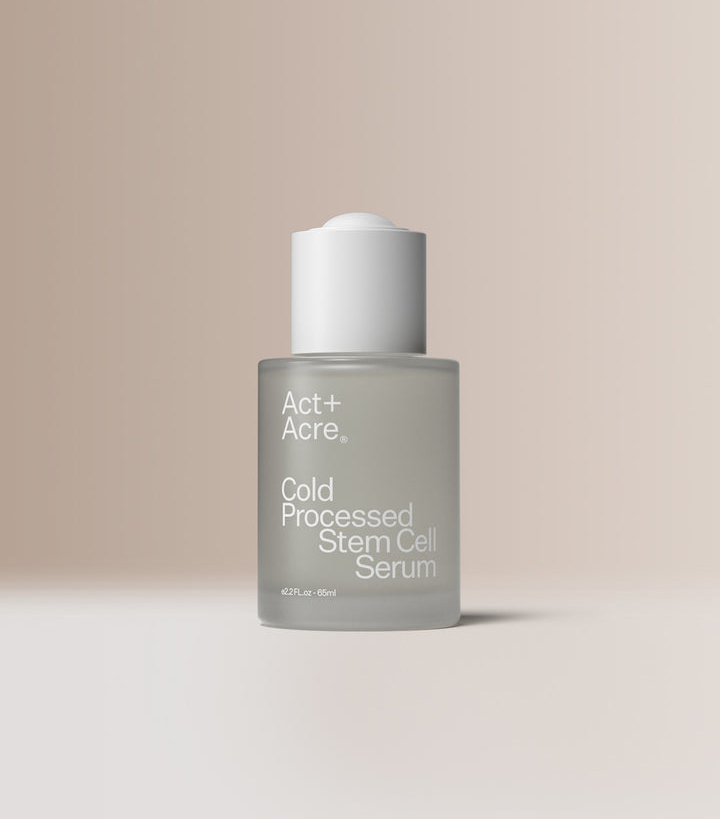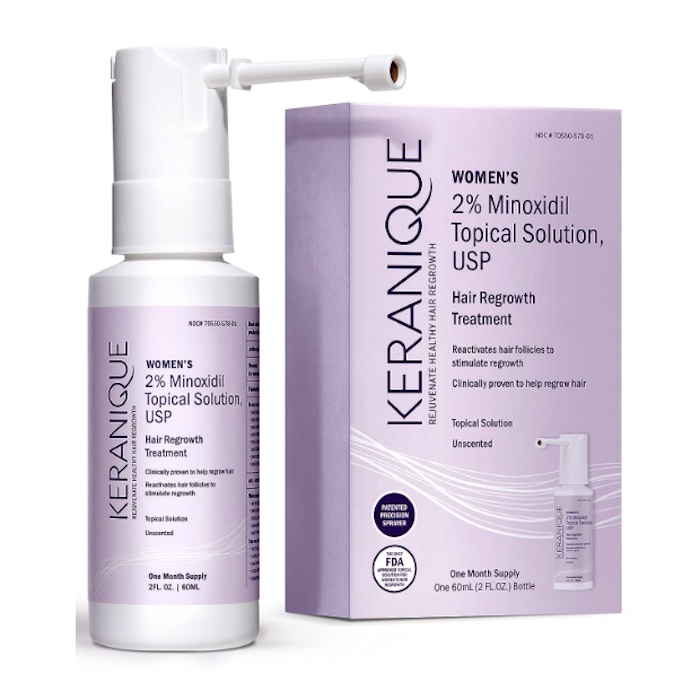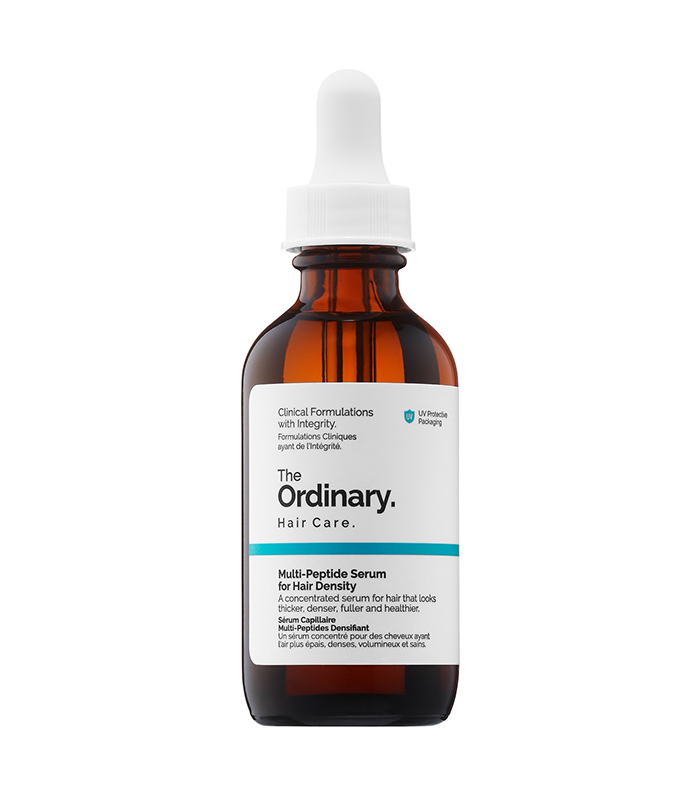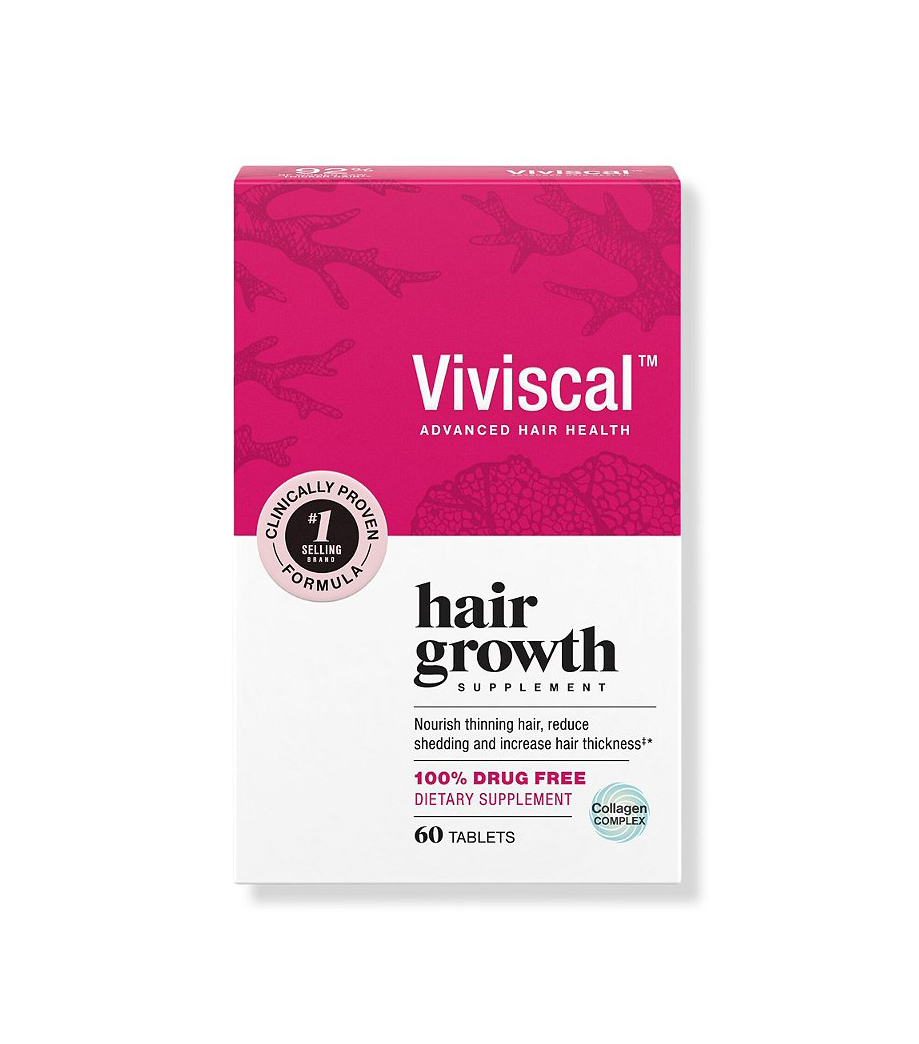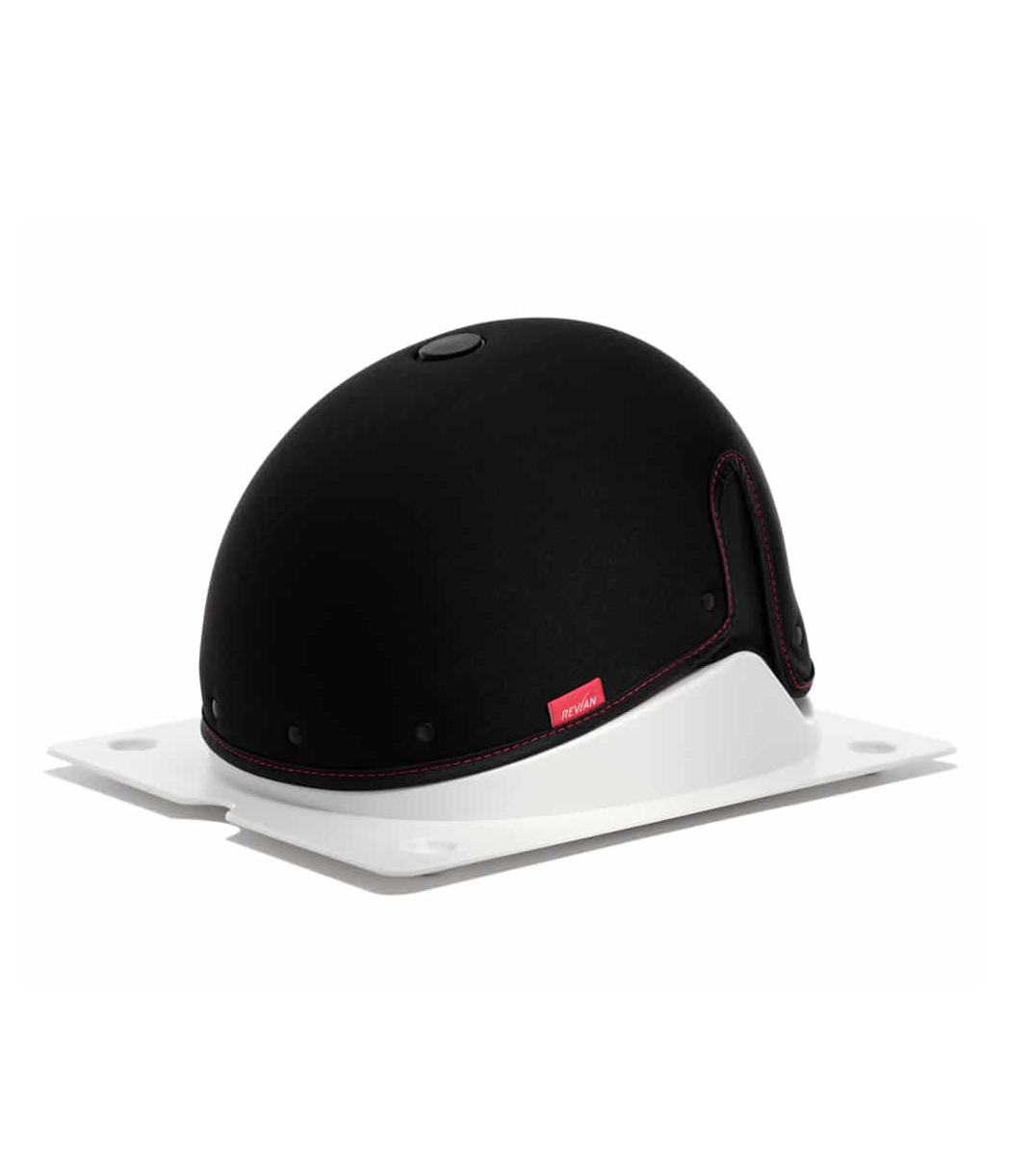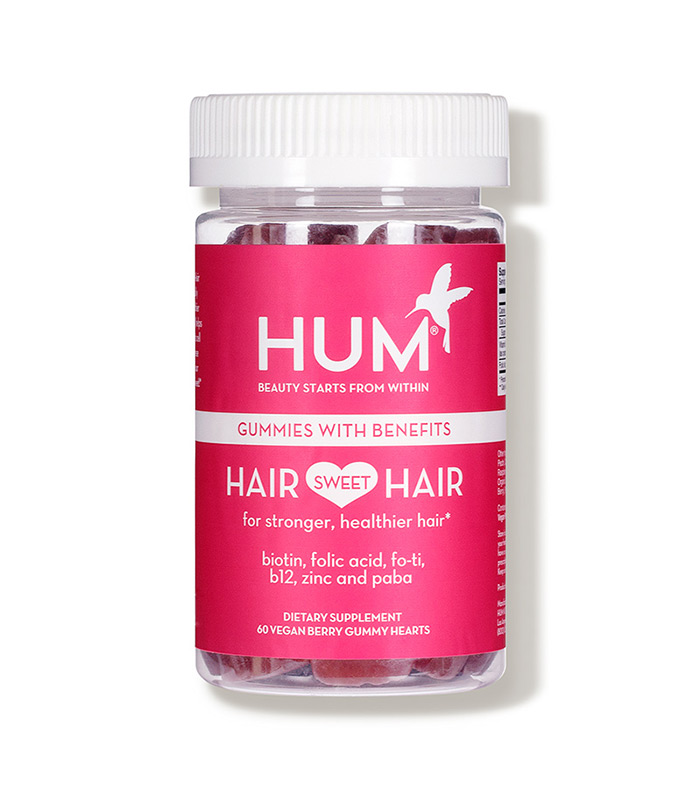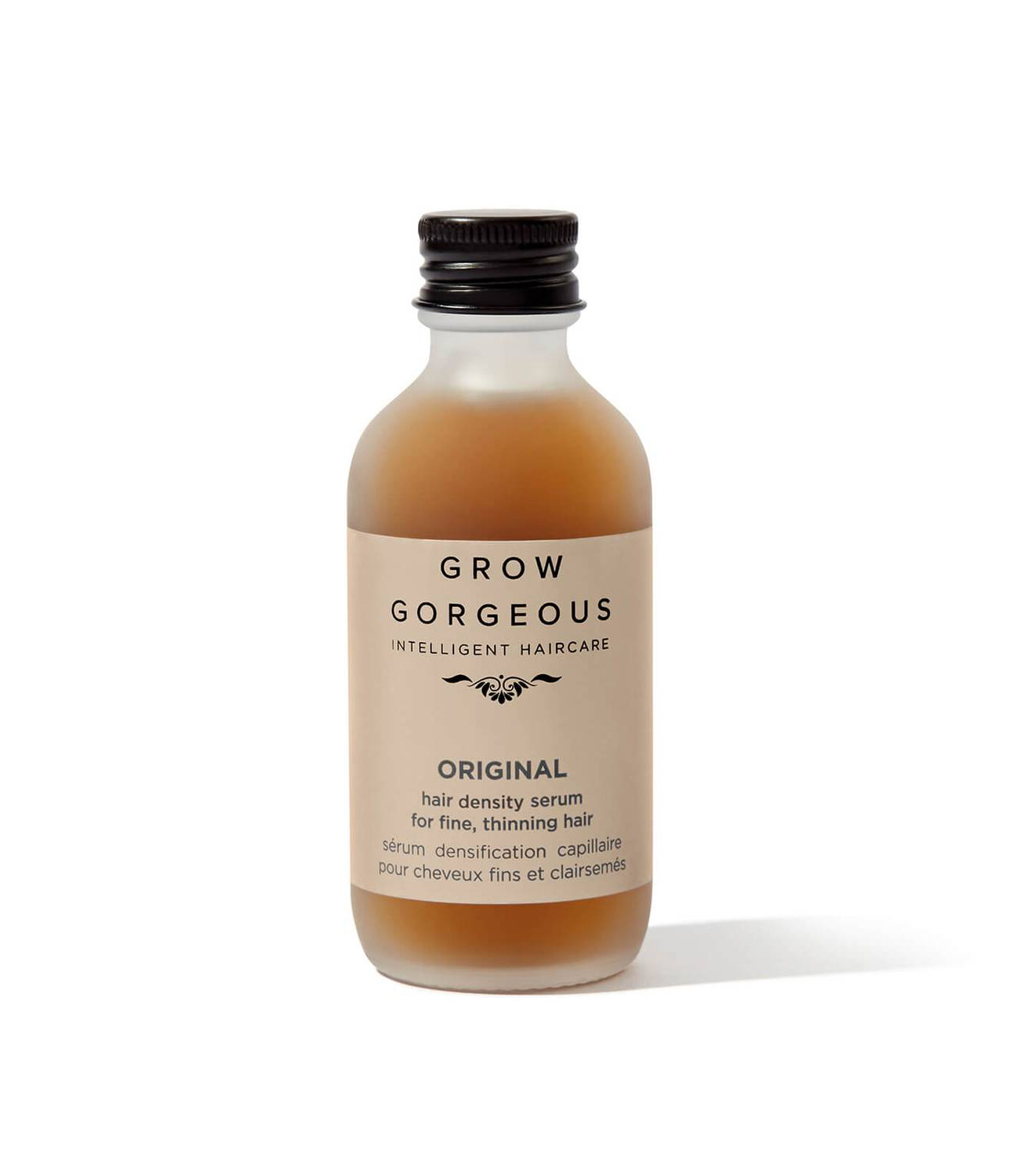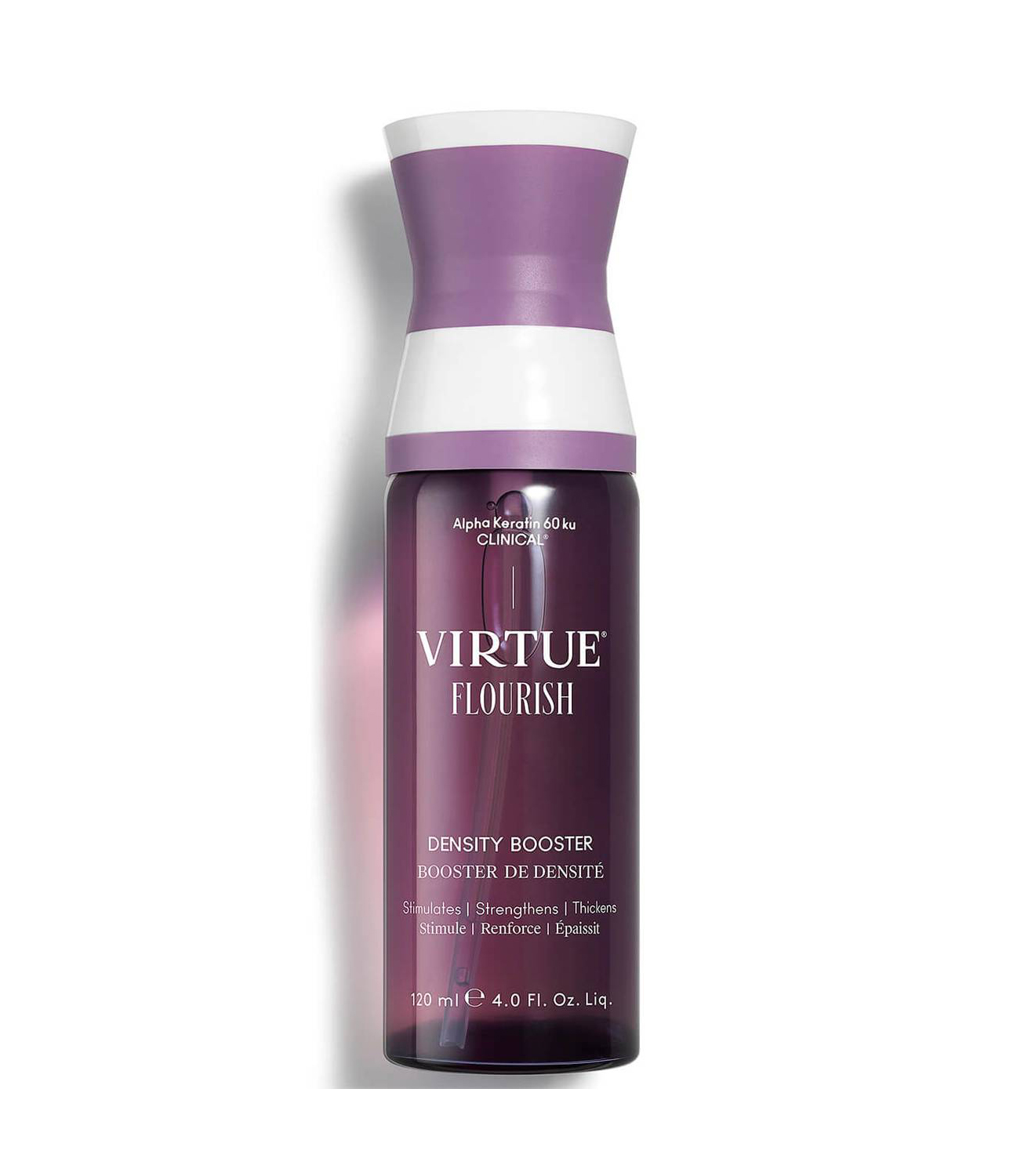7 Things You Can Do Now to Make Your Hair Look Way Fuller
I think we all dream of thick and voluminous hair, right? I know that's my goal, but as someone who has very flat and sort of thin hair, I feel like it's out of reach. So of course, I'm always looking for ways to improve my hair growth and make sure my strands are at peak health. I recently had an aha moment while researching the topic. I always thought hair density and hair volume were interchangeable, but actually, they're different.
"Hair density refers to the number of individual strands of hair per square inch on the scalp. Both hair density and hair thickness, which is the diameter of an individual strand of hair, contribute to volume," explains board-certified dermatologist and founder of Maei MD Rebecca Marcus, MD.

How do you know if you have healthy hair density? Two signs are if your hair feels thick and you don't have patches of hair loss or shedding more than 100 hairs, explains Helen Reavey, celebrity hairstylist and founder of Act+Acre.
"We typically have 80,000 to 120,000 hairs on our scalps," says Tracy Evans MD, MPH, FAAD, FACMS, a board-certified dermatologist, Mohs surgeon, and medical director of Pacific Skin and Cosmetic Dermatology. "The hair density is the highest at the vertex scalp or crown of the head. If you notice your hair is getting thinner, it is time to see a specialist such as a dermatologist about your hair."
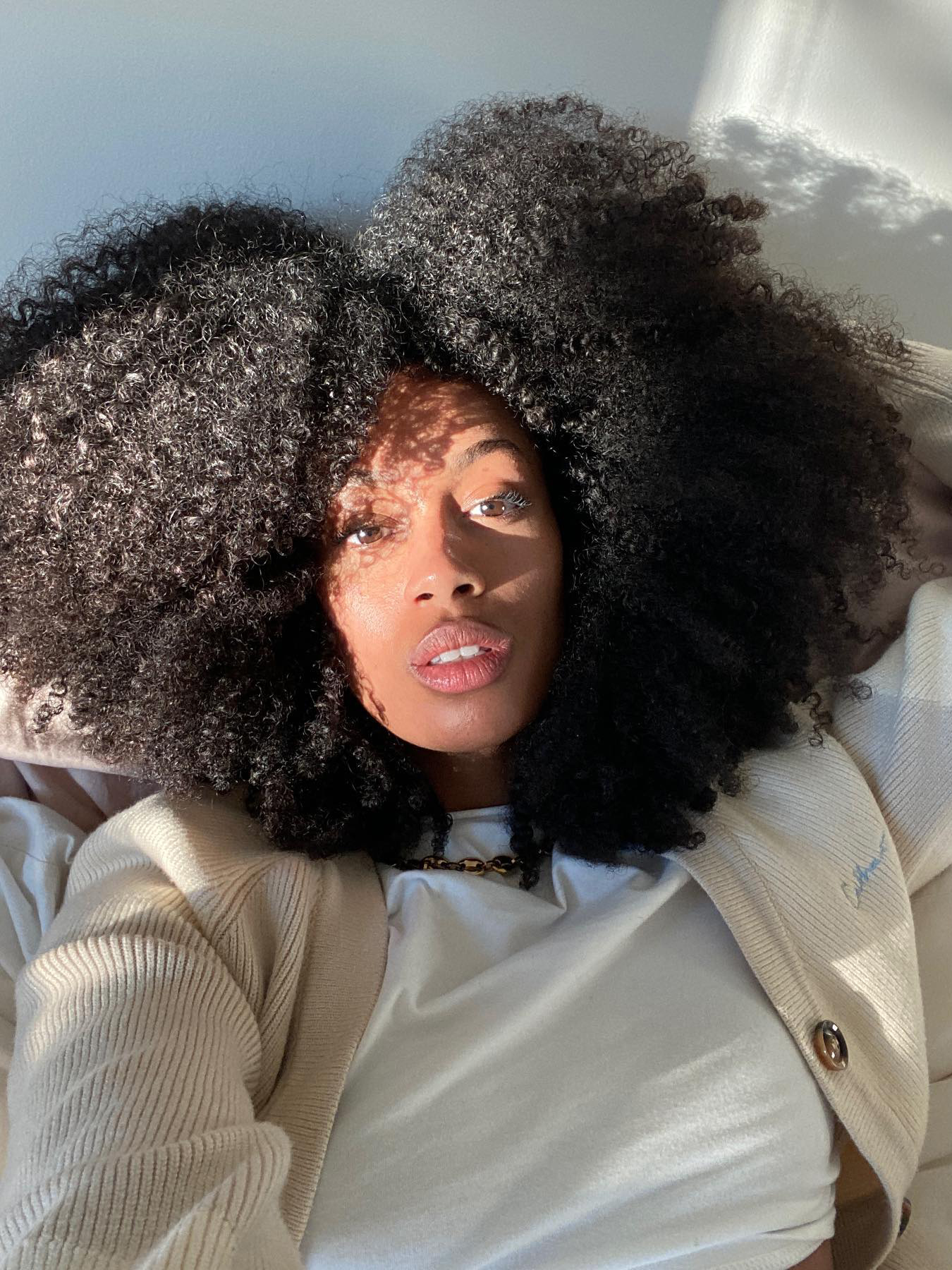
You'll want to keep in mind that what's "normal" varies from person to person and is determined by genetics, Marcus adds. And when you are noticing your hair density change significantly from what is normal for you, there might be an underlying issue. "Hair growth occurs in cycles called anagen (active growing phase, about one centimeter per month, lasts between two to six years); catagen (resting phase, about 3% of the hair on the scalp is in this phase at any given time, lasts between two and three weeks); and telogen (falling-out phase, about 6% to 8% of hairs on the scalp are in the phase at any given time, lasts for about 3.5 months)," she explains. "It is normal to lose between 50 and 100 hairs each day. This normal hair loss most often occurs when brushing or washing the hair, so if someone skips a day or more between washes, they may notice more hair than usual falling out during their next wash because they didn't lose the usual amount when they skipped the wash the day before."
Visiting a professional can help you figure out if your hair is in trouble and what steps to take to improve. "Any trichology office can offer a hair-density check with a device that can measure density throughout your head to see if there are discrepancies and if your hair is gradually thinning or growing in weaker," says Shab Reslan, trichologist and hair expert. "Warning signs of decreasing hair density include a more noticeable hair part, shorter hairs throughout, and a thinner ponytail."
How to Improve Hair Density

1. Eat a Balanced Diet: "Making sure to eat a healthy diet with plenty of essential nutrients, including protein, iron, vitamins, and minerals, may also help to increase hair density if decreased hair density is attributable to a nutritional deficiency such as anemia or a deficiency in vitamins C, D, zinc, or selenium. An excess of vitamin A can also cause hair loss," Marcus says. And Evans adds you should also make sure you're getting enough biotin, which you can get through food or supplementation if you're unable to get it through your diet.
2. Reduce Stress Levels: "Reducing stress may be one way to increase hair density if reduced hair density is due to telogen effluvium (hair loss that occurs when more hairs than normal enter the telogen phase simultaneously in response to a stressful event or illness)," Marcus explains.
3. Stay Hydrated: Reavey recommends keeping up your hydration levels to ensure healthier hair and scalp.
4. Treat Your Scalp: "Protecting the functionality of your follicles is the only way to maintain your hair density and prevent any thinning," Reslan says. "The best ways in which to protect your follicles include using a scalp topical that will nourish and stimulate the cells of your follicles and slow down the inevitable shrinkage of each hair as well as supplements that can extend the life of the follicle and allow for optimal hair growth."
And Reavey recommends properly cleaning and exfoliating the scalp and massaging it for improved circulation and blood flow.
5. Try Other Topical Formulas and Oral Medications: Evans suggests considering a topical formulation like minoxidil or taking some nutritional supplements that can provide nutrients and vitamins to build up your hair's health.
6. Get Blood Work Done: "Make sure to get your blood work checked," Evans says. "Thyroid problems, iron problems, and other diseases can cause hair loss and should be checked."

7. Try Hair-Restoration Treatments: There are a few professional treatments and procedures you can turn to if you're experiencing severe thinning or you feel like your hair needs an expert's touch. First, there's PRP. "PRP is a treatment in which the patient's blood is drawn, centrifuged to separate the platelet-rich plasma, and this platelet-rich plasma is then injected back into the scalp," Marcus says. "The stem cells in the platelet-rich plasma stimulate the hair follicles to grow hair."
You could also consider getting a hair transplant. "Hair transplantation can improve hair density tremendously," Evans says.
Shop These Products to Improve Hair Density
There are quite a few options to shop if you're looking to pump up your hair density. Just be sure to check with your doctor if you're planning on taking a supplement.
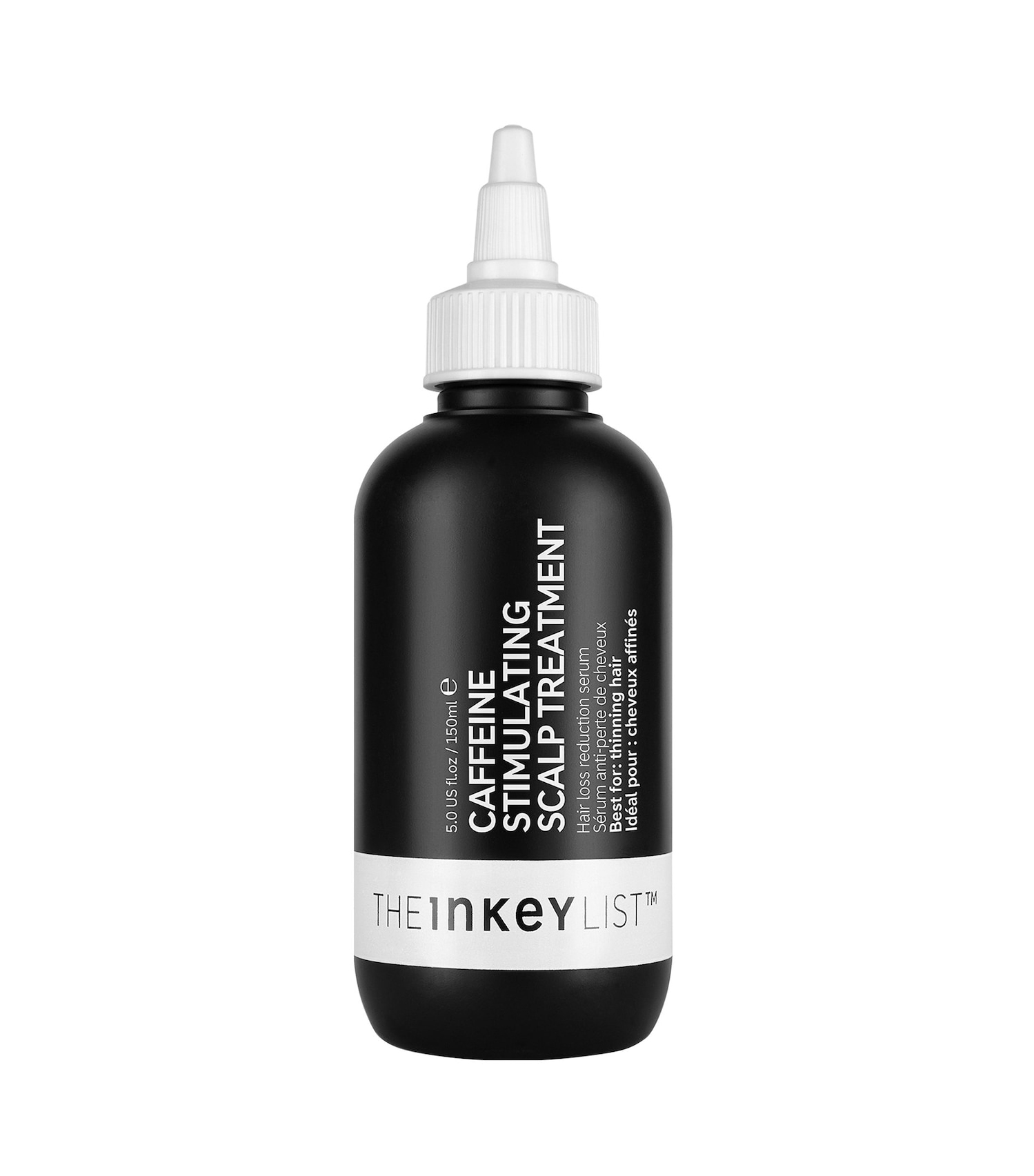
"A simple and effective product that extends the growth phase of the hair and prevents overall hair thinning is the Caffeine Stimulating Scalp Treatment by The Inkey List," Reslan says. "[It's] to be applied to your scalp and left in overnight every night and washed out in the morning for visible results of less thinning and healthier growth after three months." She adds that its key ingredient is Redensyl, which helps with overall density since it reduces and prevents hair loss by stimulating hair follicles and improving hair thickness.
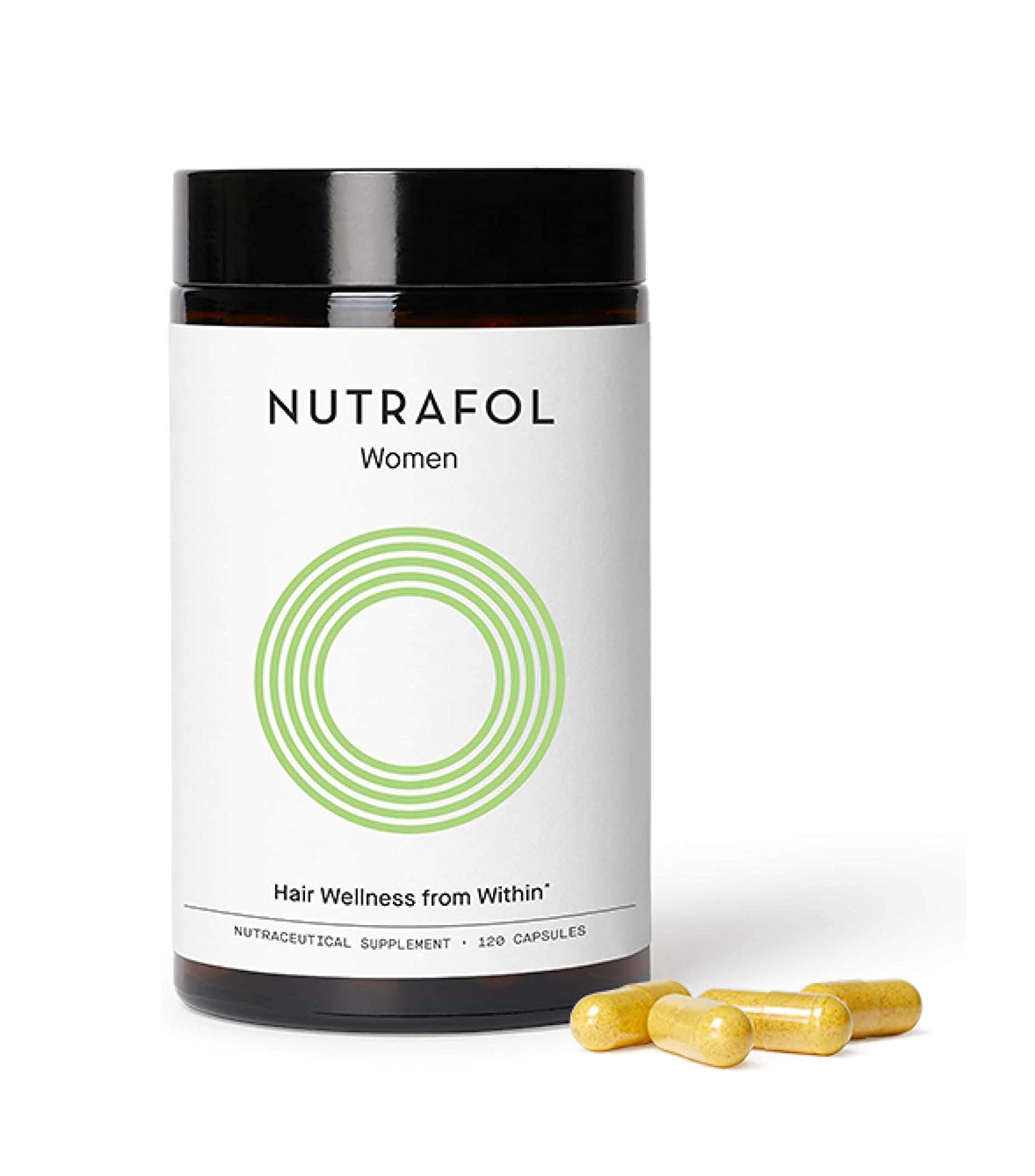
"Nutrafol is a nutritional supplement that supports hair follicles by targeting stress, hormonal, nutritional, and metabolic causes of hair thinning," Marcus says. "Nutrafol's manufacturer has published a study that shows that their product increases hair density after three to six months of regular use."
This article was published at an earlier date and has since been updated.
Sarah is lifestyle writer and editor with over 10 years of experience covering health and wellness, interior design, food, beauty, and tech. Born and raised in Los Angeles, she attended New York University and lived in New York for 12 years before returning to L.A. in 2019. In addition to her work atBest Knockoff Luxury Clothing , she held editor roles at Apartment Therapy, Real Simple, House Beautiful, Elle Decor, and The Bump (sister site of The Knot). She has a passion for health and wellness, but she especially loves writing about mental health. Her self-care routine consists of five things: a good workout, “me” time on the regular, an intriguing book/podcast/playlist to unwind after a long day, naps, and decorating her home.
